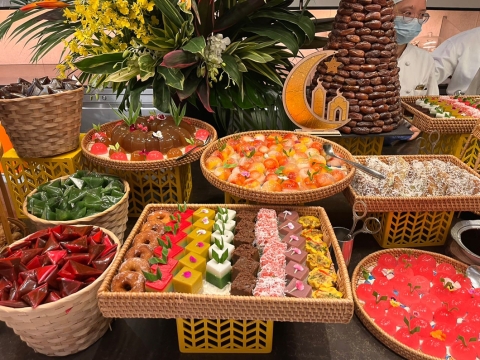As we reach the end of the 2018, many families are looking forward to a relaxing holiday period – a time to unwind, recharge, and celebrate the Christmas period with friends and family.
But the end of a calendar year is also a common time for families to move schools, cities and even countries. Indeed for many families, December marks a time of transition.
As adults, we understand that moving on, saying goodbyes and the associated upheaval of friendships, are just part and parcel of living overseas. But when you’re a kid, the thought of saying so many goodbyes can be really tough.
As parents, it is our job to support our children through the transition process and help them find the ‘good’ in their goodbyes.
Here are some ways you can help your child through this emotional process.
1. Talk
The leaving of friendships and familiarity is a recognised form of grief, also known as ‘expat grief’ or ‘relocation grief’. Children often grieve in silence or try to push aside their feelings because they don’t quite know how to cope with them. So, it’s up to us to help them open up and talk.

The best way to get a child to open up is to ask open questions such as “How do you feel about saying goodbye?” This way, you aren’t putting words in your child’s mouth, but rather giving them the chance to vocalise their feelings.
Try and assure your child that it is perfectly normal to feel scared, worried or emotional about saying goodbye. Acknowledge their sadness, their fear of making new friends and their worries about losing current friendships. Encourage your child to ask questions and talk about how the move is a affecting you as the parent – it’s important they know they’re not alone.
Above all, be supportive. Reassure your child that they can cope with what’s ahead and that you’ll get through it as a family.
2. Commemorate
Be brave! Commemorate the goodbyes with some sort of celebration or leaving party. You might think that publicly acknowledging your family’s leaving with a party or event might make it worse and upset your child. The thought of it might even upset you! But it’s important.
Having a goodbye ‘celebration’ or leaving party is healthy. It can help provide your child with a sense of closure – even if they can’t articulate it – and help them deal with all the changes that are about to come their way. The event doesn’t need to be anything formal or grand: a simple gathering by the pool, a trip to the park with close friends, anything which gives you the chance to be around your close friends and openly acknowledge the fact that you are leaving.
3. Reduce the unknown
Often, children’s anxieties about leaving one place are deeply connected to the unknown elements of the new place. So, get on the front foot and involve your child in the research and planning about this new phase of your life. Use the magic of Google to look at photos and videos of your new environment, and take a wander down your new streets using ‘street view’ on Google Maps. Involve them in your housing and schooling research: get their input so they feel they’ve got some control over the change, and more aware of what is to come. And if you’re moving to a new country, take the time to learn about the culture, traditions and lifestyle alongside your child.
——-
Although goodbyes can be hard, they also mark the ending of one chapter and the start of a new, exciting one for your family! At Garden International School, the Counselling team work closely with our teachers and school leaders to help ensure leaving families have as good a goodbye as possible.The school’s expert team of full-time counsellors facilitate supportive leavers’ groups, organise farewell gatherings and are always on hand to support individual children during times of uncertainty and change.

This post is sponsored and written by Garden International School. At Garden International School, we believe that children’s wellbeing and mental health are as important as their academic attainment. Our dedicated team of full-time counselors work closely with our teachers to ensure that every child has a strong support network of trusted adults and plenty of opportunities to talk. Together with our GIS parents, we work hard to ensure that every child feels safe, supported and able to flourish – socially, emotionally and academically.
Interested to learn more about GIS? Get in touch, book a tour or discover more of GIS at gardenschool.edu.my or via feedback@gardenschool.edu.my.




















